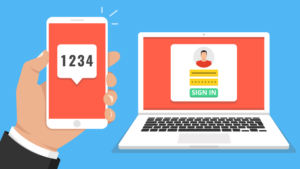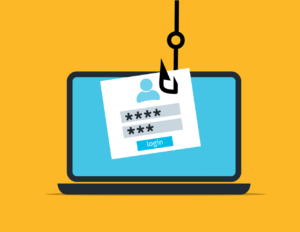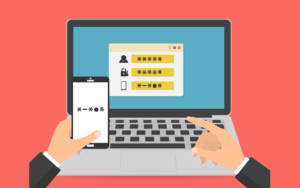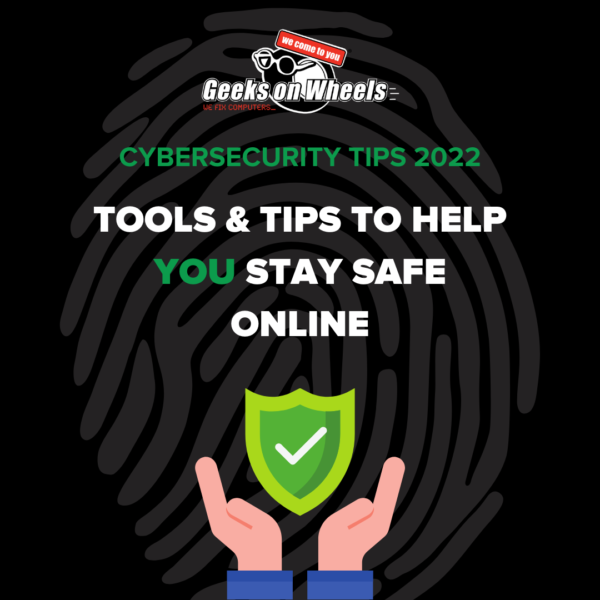Hi Geek Fans! We all know it’s important to stay safe online, but do we know how? This month we’ve put together our best tips for staying safe online in your everyday browsing.
In 2021, the Norton Life Lock Cyber Safety Insights Report found that almost half of Kiwis (47%) said that they didn’t know how to keep themselves safe from cybercrime. And as cybercrime is on the rise, there’s never been a better time to learn a few tips and tricks to keep yourself safe online. Here are our top tips and tools to ensure your cyber security is sound.

Back up your device
One of the most challenging parts of being hacked or scammed is the possibility of losing access to all of your data. If someone gets hold of your phone, laptop, or other devices, you could lose all of your files, photos, and information. So be sure to back up your devices.
You could do this with Cloud software such as OneDrive, Google Drive or iCloud, or with an external hard drive.

Delete spam emails immediately
Spam emails are a daily occurrence for most of us. But you should never do anything more than mark them as spam and delete them.
It can be tempting to click on their ‘unsubscribe’ buttons, or even reply to ask to be removed from their email list. However, all these actions do will show them your email is active, and encourage them to send more.

Strengthen your password
Are you using the same password for all of your various accounts? If a scammer gains access to one account, they will therefore gain access to all of them.
In particular, you should take care to secure your email with a strong password. Change it regularly and keep it difficult to guess. This is because if someone breaks into your email account, they can usually reset your passwords for every other service that uses that address. Therefore this is the one to pay particular attention to. Strengthen your passwords by keeping them difficult by using a mix of upper and lower case and symbols. You can also change them regularly, and ensure they are different.
If you have trouble keeping on top of them all, you can use a Password Manager tool such as 1Password to secure all of your passwords in one place. There are more security benefits that a Password Manager could do. Watch our video and discover why you need one.

Be cautious about phishing and scams
The first rule of thumb online is that if something seems too good to be true, it probably is. Whether it’s an amazing deal on a valuable product or a free trial that would usually cost a lot more, it’s better to be cautious.
- Always check the website for signs of illegitimacy, such as poor wording and typos, a lack of information, missing returns/refunds policies, and online reviews.
- Additionally, remember that your providers – such as banks or phone companies – would never call you asking for your log in information or passwords. They also usually avoid asking you to log in directly from their emails. If in doubt, go directly to their website to log on or give them a call directly.
Pro tip: It also pays to be very wary of ‘fun’ social media games. A common post on Facebook will ask you to share your ‘stripper name’. It says that it’s your grandmother’s first name plus the first street you lived on. Therefore by sharing your ‘stripper name’, you are giving away the answers to common security questions.
Follow our social media to stay informed with the latest scams!

Use two-factor authentication (2FA)
Two-factor authentication adds a few seconds to your log-in process, and a massive amount of security to your online activities.
This process simply requires two steps to log in. For example, you could enter your password, then the system sends you an additional code to your phone or email. Or perhaps you use a password, then the system asks for the answer to a question only you would know. This means that even if a scammer does get hold of your password, there’s still another barrier for entry.

Never use free Wi-Fi for sensitive work
Places such as airports and cafés often provide free Wi-Fi. Yet you should only use those free Wi-Fi networks for basic browsing. That means no logging into your bank or email on a free network (but playing Wordle is totally fine!).
Get help from the experts
We can’t all be Geeks, which is why our Geeks are on hand to help the less ‘geeky’. Our Geek+ program is an annual subscription that offers you IT support all year round.
It’s available for individuals, couples, and families. It also includes a free health and security check, unlimited* help for all your IT questions, and a 20% discount on home visits. You can use this service to get set up with all the right cyber security precautions, learn more about what you can do to stay safe online, and stay up to date with the latest best practices.
Get in touch today to learn more or get signed up!
